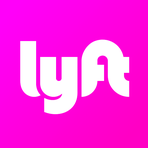Lyft Accelerates into Europe with Free Now Acquisition
April 17, 2025, 4:43 am
In a bold move, Lyft is steering into the European market. The ride-hailing giant has announced its acquisition of Free Now, a prominent taxi app, for €175 million (approximately $199 million). This marks Lyft's first foray into Europe, a territory dominated by established players like Uber and Bolt. The deal is expected to close in the latter half of 2025, pending regulatory approvals.
Free Now, founded in 2009 as myTaxi, has grown into a significant player in the European mobility landscape. Headquartered in Hamburg, Germany, it operates in over 150 cities across nine countries, including the U.K., Germany, and France. The app offers a range of services, from traditional taxi bookings to e-scooter rentals, catering to diverse mobility needs. With Free Now's established presence, Lyft aims to tap into a market that still relies heavily on offline bookings.
Lyft's CEO, David Risher, sees this acquisition as a pivotal step in the company's growth journey. He believes that Free Now's local-first approach aligns perfectly with Lyft's mission to serve and connect communities. The acquisition is expected to nearly double Lyft's addressable market, expanding it from around 161 billion to over 300 billion personal vehicle trips annually. This growth potential is significant, especially in a market where nearly half of taxi rides are still booked without digital platforms.
The ride-hailing landscape in Europe is fiercely competitive. Lyft will face challenges from established players like Uber, which has been operating in the U.K. since 2012. Uber has navigated its share of regulatory hurdles, but it has built a strong brand presence. Lyft's entry into this market comes at a time when the European taxi industry is ripe for disruption. With many consumers still relying on traditional methods of booking rides, Lyft's digital-first approach could resonate well with users seeking convenience.
Free Now's recent performance adds to the appeal of this acquisition. The company achieved break-even status in 2024, with a 13% year-on-year revenue increase, primarily driven by its taxi operations. This financial stability suggests that Free Now is well-positioned to integrate with Lyft's operations and contribute to its growth in Europe.
The partnership is not just about numbers; it's about synergy. Free Now's existing infrastructure and local expertise can provide Lyft with valuable insights into European consumer behavior. Lyft plans to maintain the Free Now brand and its current services, ensuring a seamless transition for users. This strategy allows Lyft to leverage Free Now's established reputation while enhancing service levels and product experience.
Lyft's acquisition of Free Now also highlights a broader trend in the mobility sector. As companies seek to expand their footprints, strategic partnerships and acquisitions are becoming increasingly common. The mobility landscape is evolving, and companies must adapt to stay relevant. By acquiring Free Now, Lyft is not just entering a new market; it's positioning itself as a key player in the future of urban mobility.
The deal also underscores the importance of customer-centric approaches in the ride-hailing industry. Lyft's commitment to improving service levels and enhancing user experience aligns with Free Now's values. Together, they aim to raise expectations for fleet owners, taxi drivers, and riders across Europe. This collaboration is about more than just business; it's about building a community of mobility partners.
As Lyft prepares for this significant expansion, it faces a unique set of challenges. The European market is diverse, with varying regulations and consumer preferences across countries. Lyft will need to navigate these complexities while maintaining its commitment to quality service. The company's experience in North America will be invaluable, but the European landscape requires a tailored approach.
In conclusion, Lyft's acquisition of Free Now is a strategic move that could reshape the ride-hailing landscape in Europe. With a strong foundation in place, Lyft is poised to make a significant impact. The partnership offers the potential for growth, innovation, and improved service for millions of users. As the ride-hailing industry continues to evolve, Lyft's entry into Europe marks a new chapter in its journey. The road ahead may be challenging, but with Free Now as a partner, Lyft is ready to accelerate into the future of mobility.
Free Now, founded in 2009 as myTaxi, has grown into a significant player in the European mobility landscape. Headquartered in Hamburg, Germany, it operates in over 150 cities across nine countries, including the U.K., Germany, and France. The app offers a range of services, from traditional taxi bookings to e-scooter rentals, catering to diverse mobility needs. With Free Now's established presence, Lyft aims to tap into a market that still relies heavily on offline bookings.
Lyft's CEO, David Risher, sees this acquisition as a pivotal step in the company's growth journey. He believes that Free Now's local-first approach aligns perfectly with Lyft's mission to serve and connect communities. The acquisition is expected to nearly double Lyft's addressable market, expanding it from around 161 billion to over 300 billion personal vehicle trips annually. This growth potential is significant, especially in a market where nearly half of taxi rides are still booked without digital platforms.
The ride-hailing landscape in Europe is fiercely competitive. Lyft will face challenges from established players like Uber, which has been operating in the U.K. since 2012. Uber has navigated its share of regulatory hurdles, but it has built a strong brand presence. Lyft's entry into this market comes at a time when the European taxi industry is ripe for disruption. With many consumers still relying on traditional methods of booking rides, Lyft's digital-first approach could resonate well with users seeking convenience.
Free Now's recent performance adds to the appeal of this acquisition. The company achieved break-even status in 2024, with a 13% year-on-year revenue increase, primarily driven by its taxi operations. This financial stability suggests that Free Now is well-positioned to integrate with Lyft's operations and contribute to its growth in Europe.
The partnership is not just about numbers; it's about synergy. Free Now's existing infrastructure and local expertise can provide Lyft with valuable insights into European consumer behavior. Lyft plans to maintain the Free Now brand and its current services, ensuring a seamless transition for users. This strategy allows Lyft to leverage Free Now's established reputation while enhancing service levels and product experience.
Lyft's acquisition of Free Now also highlights a broader trend in the mobility sector. As companies seek to expand their footprints, strategic partnerships and acquisitions are becoming increasingly common. The mobility landscape is evolving, and companies must adapt to stay relevant. By acquiring Free Now, Lyft is not just entering a new market; it's positioning itself as a key player in the future of urban mobility.
The deal also underscores the importance of customer-centric approaches in the ride-hailing industry. Lyft's commitment to improving service levels and enhancing user experience aligns with Free Now's values. Together, they aim to raise expectations for fleet owners, taxi drivers, and riders across Europe. This collaboration is about more than just business; it's about building a community of mobility partners.
As Lyft prepares for this significant expansion, it faces a unique set of challenges. The European market is diverse, with varying regulations and consumer preferences across countries. Lyft will need to navigate these complexities while maintaining its commitment to quality service. The company's experience in North America will be invaluable, but the European landscape requires a tailored approach.
In conclusion, Lyft's acquisition of Free Now is a strategic move that could reshape the ride-hailing landscape in Europe. With a strong foundation in place, Lyft is poised to make a significant impact. The partnership offers the potential for growth, innovation, and improved service for millions of users. As the ride-hailing industry continues to evolve, Lyft's entry into Europe marks a new chapter in its journey. The road ahead may be challenging, but with Free Now as a partner, Lyft is ready to accelerate into the future of mobility.



